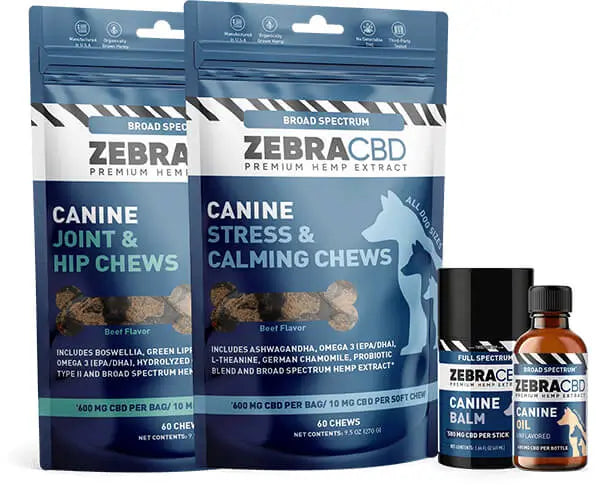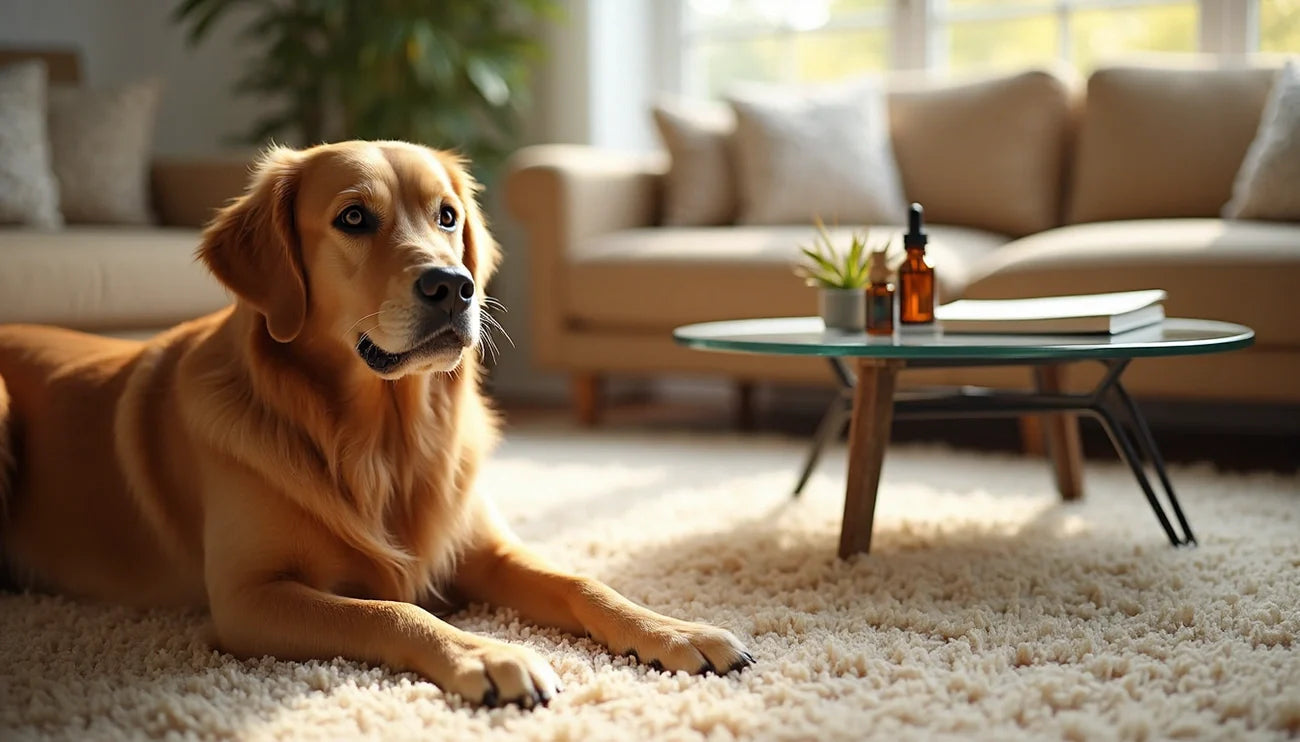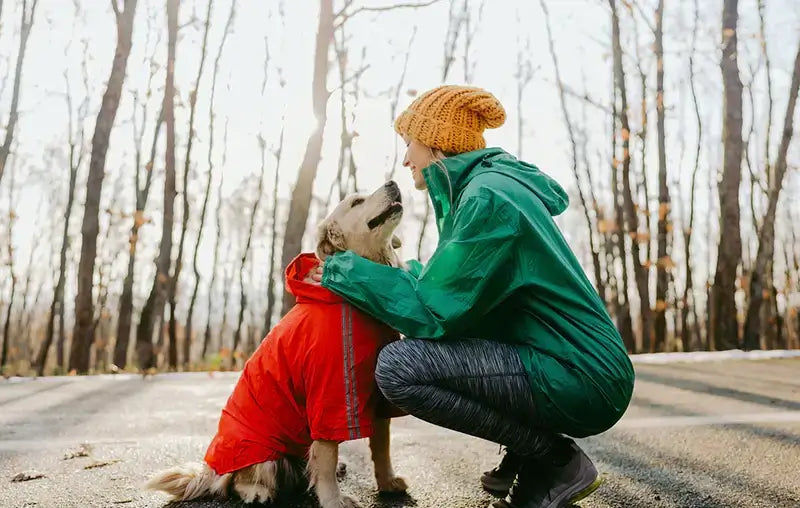
Having a dog means the occasional messy mouth, slobbery smile, or even wet kiss. While a little bit of drool is standard fare for a dog, if you notice your dog suddenly drooling a lot, it could be a sign of something more serious.
If you’re asking, “Why is my dog drooling so much?” we’re here to give you some answers.
In this guide, we’ve outlined six of the most common reasons for your dog’s drooling issues — from harmless behavioral issues to serious health problems. Follow along to discover the source of your pup’s excessive drooling and identify possible solutions.
#1 It’s Just Their Breed
Dog’s come in all sorts of shapes and sizes, from tiny chihuahuas to enormous English mastiffs.
While the physical and emotional traits of specific dog breeds may be common knowledge to some, it’s worth mentioning that certain dog breeds are more prone to excessive salivation than others.
A few breeds known for their surplus of slobber include:
- Bloodhound – Known for their tracking skills, their immensely powerful bodies and, of course, their drooling. Bloodhounds have large, drooping lips, and an incredible sense of smell. This combination turns bloodhounds into some of the wettest dogs around.
- Bull terrier – With a unique muzzle, bull terriers look like they’ve been bred to sniff out anything. As well, their particular facial features mean they are prone to heavy slobbering.
- Bulldogs – Sweet, soft, and not too big, bulldogs are a beloved breed by many. The fact that they’re known to leave trails of drool in their wake doesn’t make them any less desirable, at least not to their owners.
- Bernese mountain dog – A majestic breed known for its intellect and navigation abilities, Bernese mountain dogs are fantastic companions and known droolers.
- Saint Bernard – This classic canine companion, made famous by the movie Beethoven, has some slobbery jowls that can leave your home, car, clothes or anything else a little wetter than you would’ve liked.
Several other breeds can be particularly drooly, so if you’re wondering about your dog’s breed, in particular, do some research about their genetic predisposition toward drooling before investigating other causes. Some dogs are just born with a water feature.
#2 Behavioral Causes
Drooling is a natural phenomenon, but sometimes it’s a behavior brought on by a specific event. Consider the situation in which you notice the drooling behavior and look for probable clues that might be spurring the drooly scenarios.
A few behaviorally related causes for your dog’s slobbers may include:
- Hunger – As a dog prepares to eat, they begin producing more saliva in their mouth to prepare for digestion. The enzymes can be used to break down food and the fluid is a key component during the process of eating. If you witness a little (or a lot) of drool right before chow time, it’s likely par for the course.
- Anticipation – Are you holding a treat or a leash in your hand? The anticipation your dog feels for their favorite snack or activity can be enough to induce excess drooling. Is it possible that it’s you who’s causing your dog to drool?
If you’ve narrowed down that your dog is only reacting to natural stimuli, you can either try to correct the behavior through training or just accept the fact that you may need to carry a towel with you during certain drool-inducing scenarios.
#3 Overheating
It’s easy to forget that your dog is wearing a winter coat in the summer months. Dogs also don’t have the luxury of perspiring to cool their body down, as they lack the necessary sweat glands.
Instead, they pant to cool down their bodies during the warmer months.
While it’s common to see your dog panting in warmer weather, if that panting turns to excess drooling, it could be a sign that your puppy is suffering from overheating. To protect against the possibility of this dangerous situation, be sure to:
- Provide lots of water – It should go without saying that hydration is key to avoiding heat-related issues. Your dog should always have access to fresh, cool water. If you’re out and about and worried about your dog getting thirsty, most businesses are more than happy to provide a bowl of water to a dog in need. Always stay vigilant of your dog’s water drinking habits, too. Don’t take your pup out on a hot day if it has been avoiding its water bowl.
- Have options for shade – If your dog enjoys sunning on the front porch or spending a lot of time outdoors in the summer, try to have some options for places to cool down. Whether it’s a shady umbrella or some dense foliage, a place to get out of the sun is essential for the sun-loving dog.
If the drooling is in combination with heavy panting, a deep red tongue, pale gums and vomiting, it’s essential to contact a veterinarian immediately as this can be a sign of overheating. Luckily, you can typically avoid the seriousness of overheating by paying attention to your dog and its needs.
#4 Dental Issues
The origin of your drooling problem may begin and end in your dog’s mouth. While most modern foods provide a level of dental care for your dog, a puppy may have some oral health problems that require veterinary care.
Some common dental issues that can cause significant drooling include:
- Tartar buildup – Left-over food particles and bacteria in your dog’s mouth can make for plaque and tartar buildup that may trigger drooling.
- Gum sensitivity – Gum sensitivity can leave your dog with bad breath as well as significant drooling problems. It can also lead to tooth loss.
- Foreign objects – Sticks, bones and other objects that dogs love to chew on can become lodged in their mouths, causing dental issues and drooling. The removal of the foreign object and proper aftercare can help stop the drool and elevate your dog’s overall mood.
One of the best ways to avoid any potential dental problem is by brushing your dog’s teeth regularly. You can make teeth brushing part of your dog’s daily routine and eventually it could be something they look forward to every evening.
#5 Stomach Problems
Excessive drooling in dogs may be a result of stomach discomfort. While it’s easy to think of dogs as having iron stomachs, occasionally they may get into something that causes them actual harm.
Stomach issues that cause frequent drooling can typically be traced back to:
- Motion sickness – Dogs can get car sickness too. If your pup is drooling in the backseat, there’s a chance that they’re not handling the car trip well. This goes for boats as well. If your dog’s drool flows on the high-seas, you might be able to trace the problem back to motion sickness.
- Eating something they shouldn’t – While cats are known for being curious, dogs are known for being foodies — at least, that’s a nice way of putting it. Dogs love to taste everything and therefore are prone to swallowing potentially harmful things like toads and rat poison. Keep a close eye on anything your dog can get in their month and be ready to intervene if you see them ingesting something they shouldn’t.
- Allergies – Some dogs have allergies to food, fleas, or substances in the environment. Allergic reactions can result in itchy skin, coughing, wheezing, sneezing and drooling. Sourcing the cause of your dog’s allergies can be difficult and may require some expert help from a local vet.
If your pup needs to take oral medication due to stomach issues, find out tips on how to give a dog a pill.
#6 Stress and Nervousness
If you notice your dog whining, panting or salivating during certain situations, it could be a result of situational stress.
Stress can be brought on by several factors and each dog handles stress differently. That said, some common situations that cause doggy stress include:
- Fireworks – New Year’s Eve and the Fourth of July may be exciting times to watch dazzling fireworks light up the sky, but for your dog, it may be a seriously stressful event. Frequently, dogs will cower, hide and pant. So don’t be surprised if you see a little extra drool in their holiday hiding spot.
- New places and people – Taking your dog away for the weekend may not always be the relaxing trip you imagined, especially if your pup is prone to nervousness. Dogs are usually big fans of reliable routines and some don’t handle new experiences as well as others. Excessive drooling may be a clear sign that your dog isn’t comfortable where they are.
Exercise, entertainment and keeping a calm demeanor are good ways to help your dog calm down. Sometimes a stressful, slobbery moment can be quickly reversed with the right actions and attitude.
Keep the Drool to a Minimum With Zebra CBD
There are always a few less-than-pleasant things that come along for dog owners. While the occasional messes are unavoidable, there’s no need to put up with excessive drool due to doggy discomfort.
Zebra CBD’s canine CBD products can be a great solution to ease your dog into a calmer, less drooly state.
At Zebra CBD, we’re pet lovers ourselves, so you can feel safe knowing our high-potency hemp extract was designed with the help of a professional veterinarian and crafted with the highest quality ingredients. With our Calming CBD Chews for dogs, you’ll get the best of our formula designed to promote balanced behavior in your perfect pup.
At Zebra CBD, we’re making dogs feel better one treat at a time.
Source:
American Kennel Club. Why Do Dogs Drool? When It’s Natural and When It’s Cause for Concern. https://www.akc.org/expert-advice/health/why-do-dogs-drool/.
Fetch by WebMD. Why Does My Dog Drool So Much? https://www.pbs.org/wgbh/nova/article/dogs-sense-of-smell/.
Blue Cross for Pets. Stress in dogs. https://www.bluecross.org.uk/pet-advice/stress-in-dogs.










